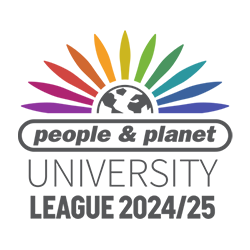-
Study
-
Undergraduate
- Search for a Course
- Undergraduate Open Day & Events
- Application Guides
- Northumbria University UCAS Exhibitions
- Foundation Years
- Undergraduate Fees & Funding
- School & College Outreach
- Continuing Professional Development
-
Postgraduate
- Postgraduate Study Degree
- Postgraduate Research Degrees
- Postgraduate Open Days and Events
- Postgraduate Fees & Funding
- Flexible Learning
- Thinking about a Masters?
- Continuing Professional Development
- Change Direction
-
Student Life
- The Hub - Student Blog
- Accommodation
- Life in Newcastle
- Support for Students
- Careers
- Information for Parents
- Students' Union
- Northumbria Sport
- Be Part of It
-
-
International
International
Northumbria’s global footprint touches every continent across the world, through our global partnerships across 17 institutions in 10 countries, to our 277,000 strong alumni community and 150 recruitment partners – we prepare our students for the challenges of tomorrow. Discover more about how to join Northumbria’s global family or our partnerships.
View our Global Footprint-
Applying to Northumbria
- European Union
- Our London Campus
- Northumbria Pathway
- International Events
- Entry Requirement and Education Country Agents
- Global Offices
-
Northumbria Language Centre
- Faculty Requirements
- Acceptable English Requirements
- Pre-sessional English Language and Study Skills
- Academic Language Skills Programmes (ALS)
-
International Fees, Funding & Scholarships
- International Undergraduate Fees
- International Undergraduate Funding
- International Masters Fees
- International Masters Funding
- International Postgraduate Research Fees
- International Postgraduate Research Funding
- International Money Matters
-
Life at Northumbria
- International student support
- Careers
-
International Mobility
- Current Northumbria Students
- Incoming Exchange Students
-
-
Business
Business
The world is changing faster than ever before. The future is there to be won by organisations who find ways to turn today's possibilities into tomorrows competitive edge. In a connected world, collaboration can be the key to success.
More on our Business Services -
Research
Research
Northumbria is a research-rich, business-focused, professional university with a global reputation for academic quality. We conduct ground-breaking research that is responsive to the science & technology, health & well being, economic and social and arts & cultural needs for the communities
Discover more about our Research -
About Us
-
About Northumbria
- Our Strategy
- Our Staff
- Place and Partnerships
- Student Profiles
- Alumni Profiles
- Leadership & Governance
- Academic Departments
- University Services
- History of Northumbria
- Contact us
- Online Shop
-
-
Alumni
Alumni
Northumbria University is renowned for the calibre of its business-ready graduates. Our alumni network has over 246,000 graduates based in 178 countries worldwide in a range of sectors, our alumni are making a real impact on the world.
Our Alumni - Work For Us
What will I learn on this module?
On this module you will explore the concept of identity in relation to literary texts across a range of periods and genres and in relation to contemporary debates around identity politics and the so-called culture wars. The module will address the relationship between identity and literary representation, drawing on approaches that might include intersectionality, narrative theory and gender studies. You will be encouraged to consider how literary texts participate in the representation and production of gendered, racial, national, sexual, post-colonial and other identities and their discussion and perception in the public sphere, from the classroom to the media. The module will extend your understanding of to the links between literary texts and real-world cultural, social and political debates, preparing you for the study of contemporary literature modules at Level 6.
How will I learn on this module?
You will be taught via two 1.5 hour weekly sessions, which will include lecture and seminar components. The weighting of lecture versus seminar will vary week-on-week depending on the texts and topics under discussion. Lecture components will supply key contextual information and introduce relevant theoretical and literary concepts. Seminar components will give you the opportunity to discuss and reflect critically on ideas presented in the lectures, and in doing so develop your own critical responses to the texts. Seminars will also help in the development of your intellectual, practical and transferable skills.
In addition to learning during contact hours, you will be expected to undertake both directed and independent learning. Directed learning will take the form of preparation for seminars (including both reading and the preparation of critical responses to the studied topics) either individually or in small groups. Your independent learning generally will take the form of further reading and research in preparation for your presentation and essay, the consolidation of seminar materials and the completion of the assessment.
How will I be supported academically on this module?
Your week-on-week learning will be supported by lecture slides made available via the e-learning portal and handouts with study questions provided by the tutors in advance to help you prepare each week’s seminar. You will meet the module tutor for at least one one-on-one tutorial to discuss an essay plan, and you will be strongly encouraged to see your tutor in their weekly consultation and feedback hours as often as you feel will benefit your work. The module will make appropriate use of the VLE to provide you with module material, links to resources and discussion areas. The feedback you will receive on formative and summative work is detailed and emphasises existing strengths of your writing and communication skills as well as room for further improvement. In addition, you can take advantage of a wide range of research and essay writing skills resources, including face-to-face sessions, offered by the library as part of their Skills Plus programme.
What will I be expected to read on this module?
All modules at Northumbria include a range of reading materials that students are expected to engage with. Online reading lists (provided after enrolment) give you access to your reading material for your modules. The Library works in partnership with your module tutors to ensure you have access to the material that you need.
What will I be expected to achieve?
Knowledge & Understanding:
1. In-depth knowledge of key literary treatments of identity
2. An appreciation of the significance of context, and the ability to relate relevant historical and social context to literary texts
Intellectual / Professional skills & abilities:
3. The ability to incorporate theoretical ideas into the analysis of literary texts
4. The ability to present analysis in written and oral forms, exhibiting key transferable skills.
Personal Values Attributes (Global / Cultural awareness, Ethics, Curiosity) (PVA):
5. Understanding of sensitive ethical issues surrounding identity politics, including sexism, racism and body politics.
How will I be assessed?
Oral presentation (30%)
The oral presentation assesses Module Learning Outcomes 3., 4. and 5. in particular, as it provides you with an opportunity to offer your own insights into key critical debates while also encouraging you to engage with and respond to the work of your peers. Many students find it difficult to contribute to seminar discussion and a formal and assessed presentation is one way of providing these students with a more structured format. The oral presentation further gives you practice in key employability skills (verbal communication skills and the use of audio-visual aids).
2,500 word essay (70%)
The essay assesses Module Learning Outcomes 1., 2., 3. and 4. in particular by enabling you to explore texts covered on the module in depth and to engage with key critical concepts and cultural contexts explored on the module.
Feedback from the first assignment will inform your preparation of the second. Ongoing formative feedback will take place within the seminars as part of the continual discursive process of group analysis of the texts, themes and issues.
Feedback will be provided in typed form with additional verbal or handwritten comments, and you will be invited to discuss your individual feedback with the module tutor in a one-on-one tutorial.
Pre-requisite(s)
None
Co-requisite(s)
None
Module abstract
This module explores how identity is represented as a plural and intersectional concept in a range of different literary texts. We consider factors such as nation, religion, gender or race and their contribution to our sense of identity, and we also think about the role of literature in contemporary debates about so-called identity politics. We will discuss texts in various genres (fiction, poetry, prose, film) and you will also be able to choose and explore your own examples of texts for one of your assessments on this module, the oral presentation.
Course info
UCAS Code Q320
Credits 20
Level of Study Undergraduate
Mode of Study 3 years Full Time or 4 years with a placement (sandwich)/study abroad
Department Humanities
Location City Campus, Northumbria University
City Newcastle
Start September 2025
All information is accurate at the time of sharing.
Full time Courses are primarily delivered via on-campus face to face learning but could include elements of online learning. Most courses run as planned and as promoted on our website and via our marketing materials, but if there are any substantial changes (as determined by the Competition and Markets Authority) to a course or there is the potential that course may be withdrawn, we will notify all affected applicants as soon as possible with advice and guidance regarding their options. It is also important to be aware that optional modules listed on course pages may be subject to change depending on uptake numbers each year.
Contact time is subject to increase or decrease in line with possible restrictions imposed by the government or the University in the interest of maintaining the health and safety and wellbeing of students, staff, and visitors if this is deemed necessary in future.
Useful Links
Find out about our distinctive approach at
www.northumbria.ac.uk/exp
Admissions Terms and Conditions
northumbria.ac.uk/terms
Fees and Funding
northumbria.ac.uk/fees
Admissions Policy
northumbria.ac.uk/adpolicy
Admissions Complaints Policy
northumbria.ac.uk/complaints














